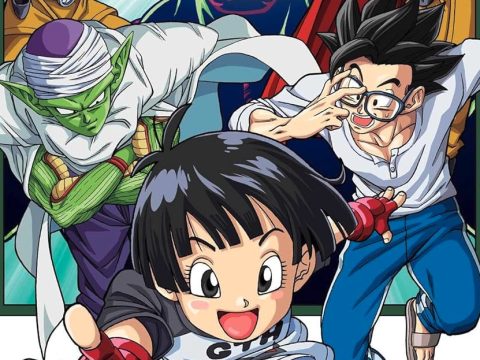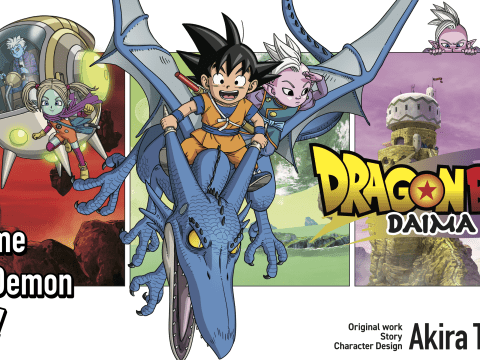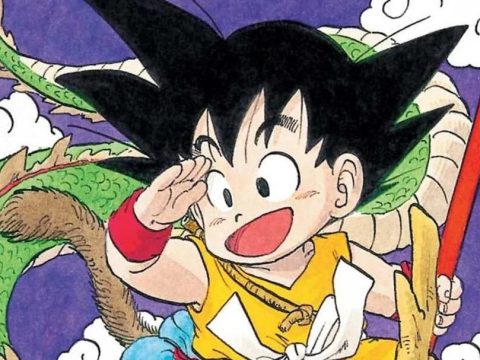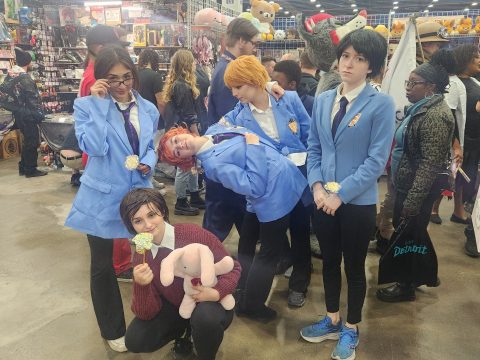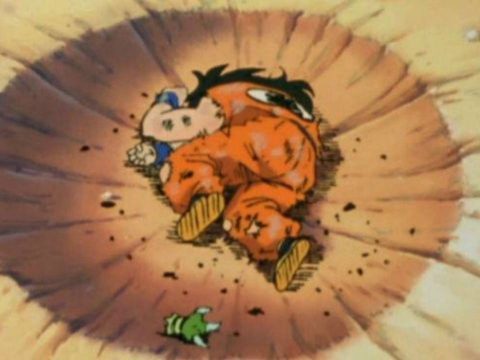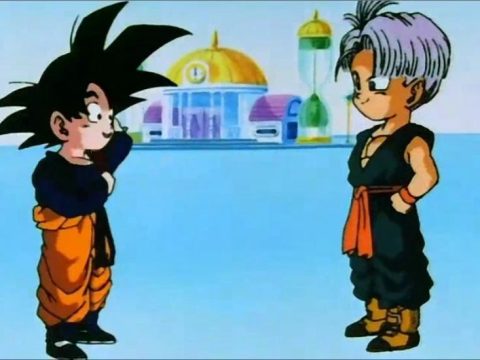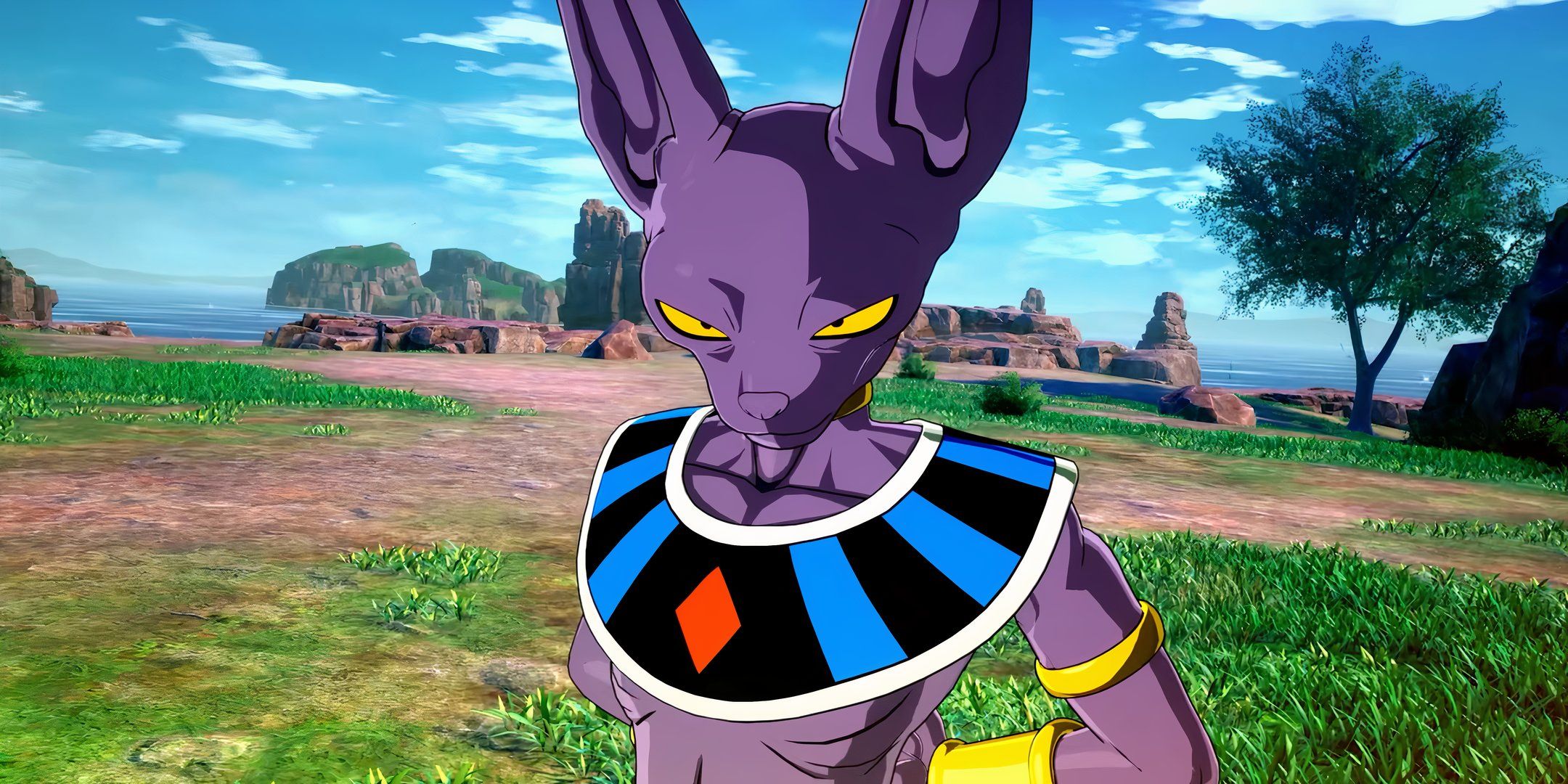
As a voice actor, Jason Douglas’s credential include Dragon Ball Super, Attack on Titan, Chainsaw Man, Black Butler and many others, while his work in live-action has had him on-camera for shows like Breaking Bad and The Walking Dead. While at Detroit’s Youmacon convention, he spoke to Otaku USA about his varied background in acting, how Dragon Ball Super’s Beerus is inside of him now, and his fondness for noir-style storytelling in anime and elsewhere.
You are in a lot of different types of acting. What is your acting background?
I started at the University of Houston School of Theater back in the early 90s and was a theater major. Spent time with instructors like Jose Quintero and Sidney Berger and Carolyn Boone. It was a transformative experience for me because I really wasn’t sure what I wanted to do with the rest of my life at that point. I just discovered that I loved language and I loved being in front of an audience and performing and bringing stories to life.
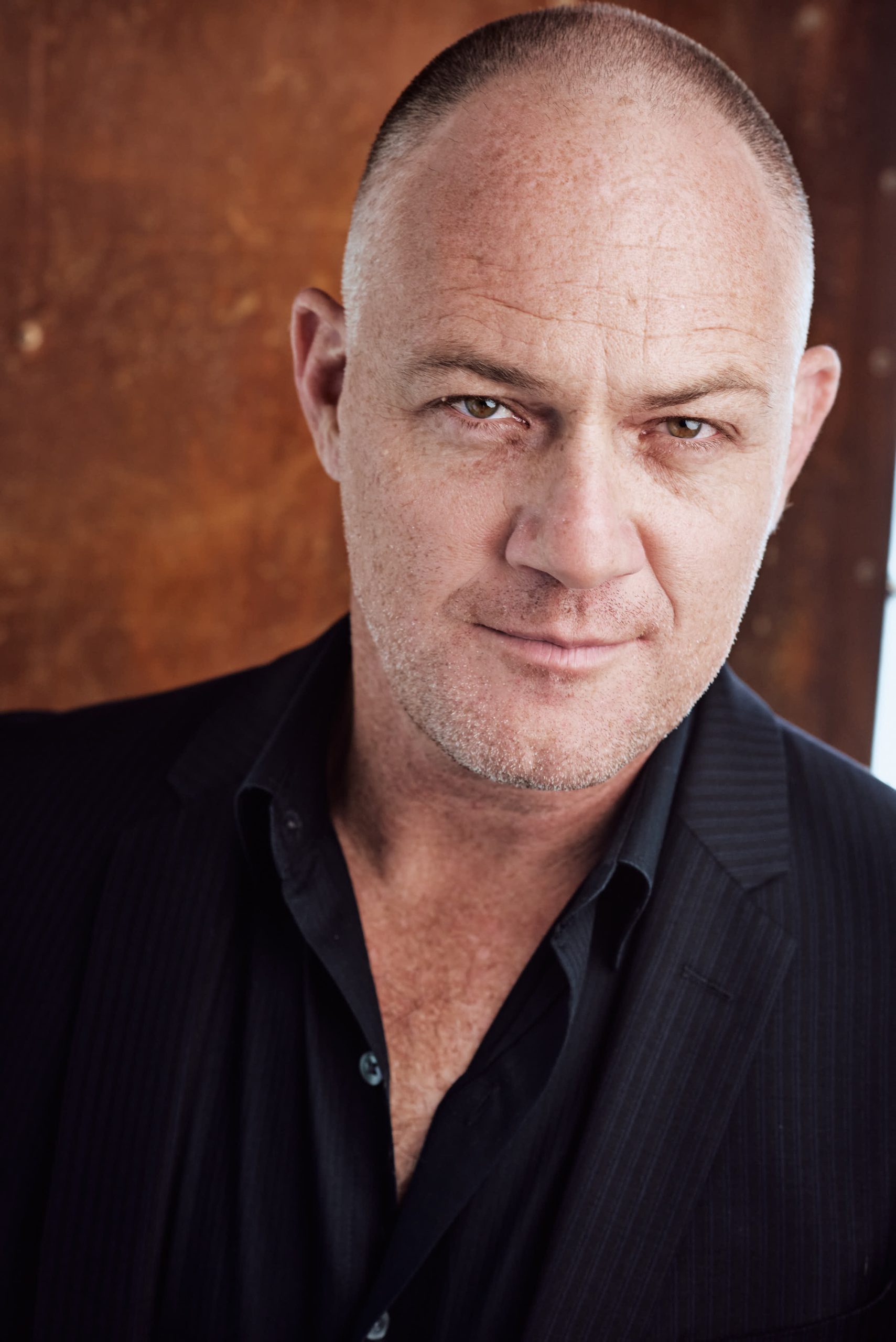 So after college, when I was pursuing theater work, mostly in and around Houston, I sort of got recruited by some friends of mine who were doing work with a very young company called ADV Films. They were headquartered in Houston, did all of their dubbing and literally all of their work in the Houston area. The first show that I got cast in was the lead in an OVA called Kimagure Orange Road: Summer’s Beginning. And I think I spent like seventeen hours in the booth with Matt Greenfield at the helm, and it was an education in itself. I realized that I really enjoyed that kind of work. I enjoyed exploring characters in that way, particularly from a culture that was a little different from my own. It was a way of opening up the world to me but also just to get to do work as an actor and get paid — even though it wasn’t very much — it was just a way to make money as well as have fun. And so I kept doing it. I never thought it would become a major cornerstone of my career. I continue to do theater, I continue to pursue film and television, but I’m still getting calls to come into the studio and do various [anime] shows. And so I began to build a résumé of anime titles.
So after college, when I was pursuing theater work, mostly in and around Houston, I sort of got recruited by some friends of mine who were doing work with a very young company called ADV Films. They were headquartered in Houston, did all of their dubbing and literally all of their work in the Houston area. The first show that I got cast in was the lead in an OVA called Kimagure Orange Road: Summer’s Beginning. And I think I spent like seventeen hours in the booth with Matt Greenfield at the helm, and it was an education in itself. I realized that I really enjoyed that kind of work. I enjoyed exploring characters in that way, particularly from a culture that was a little different from my own. It was a way of opening up the world to me but also just to get to do work as an actor and get paid — even though it wasn’t very much — it was just a way to make money as well as have fun. And so I kept doing it. I never thought it would become a major cornerstone of my career. I continue to do theater, I continue to pursue film and television, but I’m still getting calls to come into the studio and do various [anime] shows. And so I began to build a résumé of anime titles.
I began to realize that anime was really beginning to take hold by the early 2000s and the fanbases were exploding exponentially. So while I was continuing to pursue theater and pursue film and television, there was this entirely new fanbase out there. It was no longer just niche anime clubs in a college somewhere or a few collectors of esoteric Japanese culture. I kind of found myself in it without having tried to be in it, and that’s how I got started.
Were you familiar with anime before you started working in it?
Oh sure, if you call familiar [knowing] titles like Speed Racer and Akira, Ghost in the Shell. The kinds of things that we grew up with in the 80s that were on television that maybe we didn’t realize were anime. Certainly by college a lot of people are watching, talking about Ghost in the Shell and Akira.
At the time, people talked about Japanese cartoons. They didn’t use the word “anime.” Someone who knew what it was might correct you if you said, “Japanese cartoon.” But most people didn’t even know. They didn’t think it would translate culturally. And here we are today and it’s huge.
When you got involved with the Dragon Ball franchise, did you have any idea how big that was going to be for you?
No. I didn’t know how big it would be for me. I knew that it was a big deal, but I’d been in and out of a lot of shows that seemed like what we sometimes call “A titles,” the kinds of titles that studios put a lot of marketing and promotion behind. I didn’t realize just how big it would be for me until Battle of the Gods came out. There was so much fan enthusiasm. We of course did a premiere. We had a big booth at New York Comic-Con. We had like 5,000 people show up to an event at Madison Square Garden that I got to be a part of. That was really eye-opening for me. At that point I had already been doing anime work for at least 15 years, I had a résumé, I thought I was known enough, I didn’t think there was much further for me to explore, and then I sort of got invited to join the Dragon Ball cast.
How did you get in the cast?
Props to Chris Sabat. He’s not just a great guy and a terrific performer, he also has a great eye for casting, looking around and noting who’s out there that would fit well with these projects. At the time I was actually working on Borderlands 2 at his studio in the Dallas area. But shortly after that, he called me to audition. I think I had already done King Cold in the Dragon Ball Z Kai series. There was a role in the Xenoverse video game that was Beerus. But he wasn’t developed at all at that point. We didn’t know who Beerus was, where he was from, what was his background. We just had this odd-looking purple cat character. It wasn’t until Battle of the Gods revealed itself that we began to realize that this is almost a reboot of the franchise in a certain sense. This is going to be an important new character, and they did a great job in the film certainly in the opening of The Battle of the Gods of really introducing to the fans Beerus and Whis, and this idea of this multiverse.
That was also my real introduction of the character and it was a chance for us to really explore that and get the voice right, to get the rhythms right. We were like, “Yeah, we need to nail something down that’s really special for this character.” We also felt it was close to the heart for Akira Toriyama. Everything we read said it was based on his own cat. It just seemed like something that really came from his passion for storytelling.
How do you approach playing him?
At this point I feel like Beerus is inside of me, so I don’t necessarily need to prepare myself. I just show up and he’s there. It’s a shift in attitude. He’s a little more of a curmudgeon than I am, and he’s a little hotheaded, more so than I would be. He’s got obviously a weakness for the finer things related to food. He’s a foodie! So my take on Beerus is that he’s so old and powerful that he’s bored. Anything that seems new or challenging is what gets him revved up. That could be a potential foe that might really give him a challenge. Or it could be just a bowl of Jello that he’s never seen before. Right? It could be anything that kind of arouses his interests.
I love listening to you play him.
Thank you, thank you. I mean, all credit to the writing. As a theater guy, I will always credit the writers. I don’t think up the lines; everything that comes out of my mouth started at the pen of a writer, and certainly the localizers have a part to play in that. Then in the studio we refine it if we need to, but the point is I have good material. He is very animated. We see such a great range of expression on Beerus’s face. I feel like my job, like a surfer, is to ride that wave.
Did you ever meet Akira Toriyama?
Never had the pleasure, no. I did meet the [Japanese] voice actors for Goku and Vegeta.
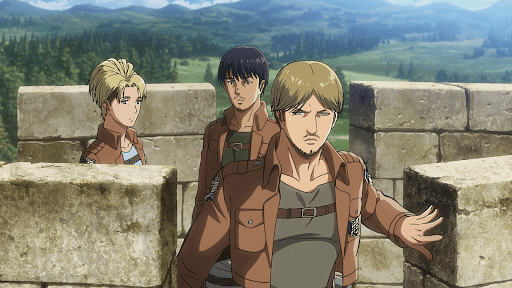
How did you get in Attack on Titan?
There’s a process of casting that happens out of what was then Funimation, now Crunchyroll. If you’re like me and you’ve been around for a while, you have a bit of a reputation on what you do, what your voice type is. Individual directors have the option to cast who they want to cast. I would have either auditioned for it or I would have been invited to do that role. That’s pretty much the process. You are sent breakdowns, and it’s like, “Here’s a show that’s coming up, here’s a range of characters that you can read for.” You just flip through and the ones that you think you’re right for, you record a little audition and you upload it and you let it go. And sometimes you get it, and most of the time you don’t. I try not to stay married to any particular audition that I do, because most of them are going to end in disappointment. So if I was cast in every single role that I auditioned for, you would see me everywhere because I audition for everything. Some of it’s luck, and some of it is just like, “Yeah, you turned in the best audition and they want to use you.” Or it might be a director who’s worked with you before and they liked working with you, so they’re like, “Let’s go another round.”
Attack on Titan is another one that’s really big. Did you know going into it?
I can’t say that I did. I’m somebody that doesn’t really keep close tabs on like ratings and show popularity. If I see a show that I like, I will enthusiastically audition for it, regardless if anybody’s ever heard of it. I do that because I like the script or I like the characters. I’m not really jockeying to be in an A-list blockbuster show. Yes, that’s nice, and I do appreciate those opportunities, but I’m really just looking to have fun and tell good stories. When I see an audition for something, I don’t necessarily think, “Ooh, I gotta be in that one.” It’s more like, “What is this character about? What’s his story? That sounds interesting. I’d like to help tell that story.” When Chainsaw Man came around, it was the same thing. I read Kishibe and I was like, “I love this character. I love this kind of character.” I love playing these hardboiled detective types for some reason. I just have an affinity for noir-ish storytelling and those kinds of characters.
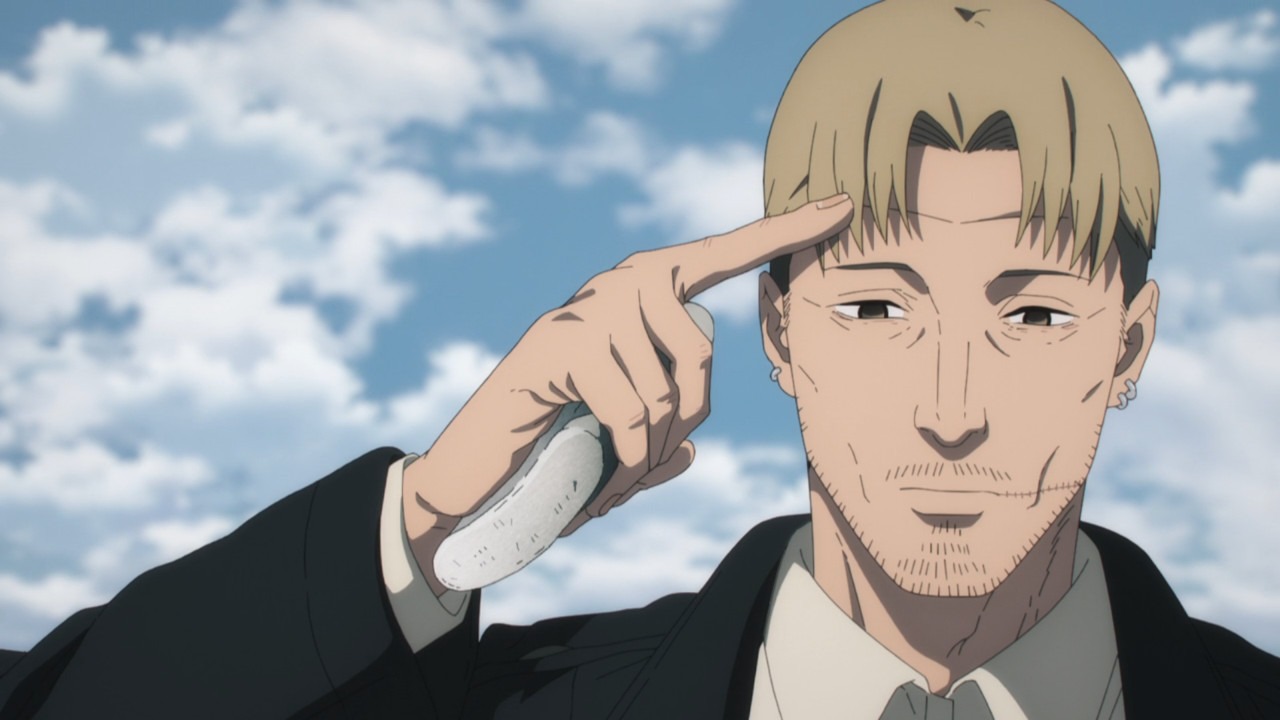
Are there any other projects you’re working on now, anime or otherwise, that you’d like to talk about?
I’ve recently started getting into voicing audiobooks, and I really love this one I did that released in mid-August. It’s a book by Ari Loeb called The Stunted Man. Ari is a terrifically gifted writer who happens also to be a working Hollywood stuntman with a deep background with Cirque du Soleil and acrobatics. He worked on The Walking Dead and Fear the Walking Dead, bunch of other cool stuff. He’s written a book about an aging stuntman who’s kind of washed out due to injuries and life choices. He gets one last shot at redemption on a film shoot in New Orleans. It’s just kind of a Gothic, psychological horror, and the people that have read it are really raving about it, and I had a great time working with Ari. So I’m trying to get the word out.
Where can people find out more about you and your work?
The easiest thing to do probably is to find me on socials. I’m on Instagram, I’m on X slash Twitter, I’ve got a Facebook fan page. There’s also just a LinkTree that you can do that has all of those as well as all my appearances.
I would say voice actors are hard-working people, and we love coming to shows like this and meeting the fans. We love the feedback we receive from the fandom. It brings our experience as actors full circle with the viewing experience of the fans, and gives us momentum when we’re recording in the booth. When we’re thinking about shows, we have faces in mind, because people have had autographs signed or asked for hugs. They’ve come out in cosplay. It definitely connects us to the fanbase that we’re working for.
Headshot credit: Brad Buckman
____
Danica Davidson is the author of the bestselling Manga Art for Beginners with artist Melanie Westin, plus its sequel, Manga Art for Everyone, and the first-of-its-kind manga chalk book Chalk Art Manga, both illustrated by professional Japanese mangaka Rena Saiya. Check out her other comics and books at www.danicadavidson.com.


